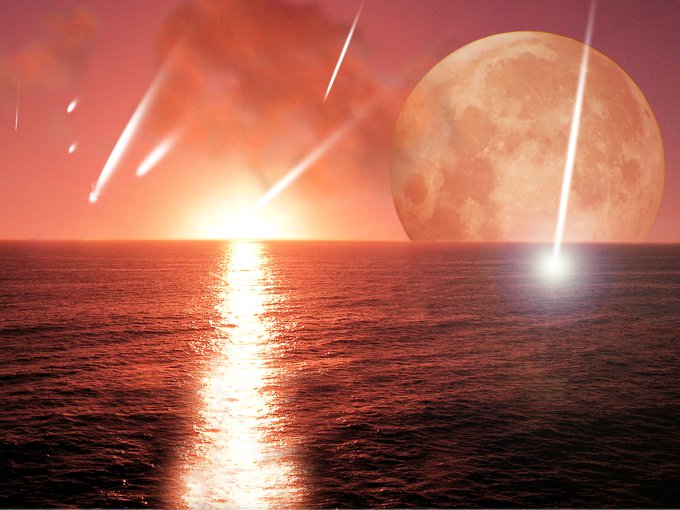Written byAaron Gronstal

Oct. 5, 2018
Research Highlight
Analysis of the Mukundpura Meteorite

Artist impression of meteorites falling on the early Earth.Image credit: David A. Aguilar (CfA).
Scientists have reported the first study of water-soluble organic content in the Mukundpura (MK) meteorite. MK is a recently fallen, CM2-type meteorite that was collected on June 6, 2017, near Jaipur, Rajasthan, India. The composition of MK appears similar to other CM chondrites, such as the Murchison meteorite. MK contains an L-enantiomeric excess of the amino acids, Isovaline and Isobutylamine. This finding supports theories that an excess of L-enantiomers could be a common feature of CM meteorites, and might have been an important input of prebiotic materials on the early Earth.
The study, “The soluble organic compounds of the Mukundpura meteorite: A new CM chondrite fall,” was published in the journal Planetary and Space Science. The work was supported by NASA Astrobiology through the Exobiology Program.